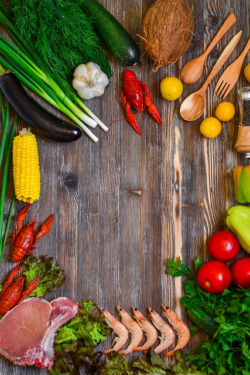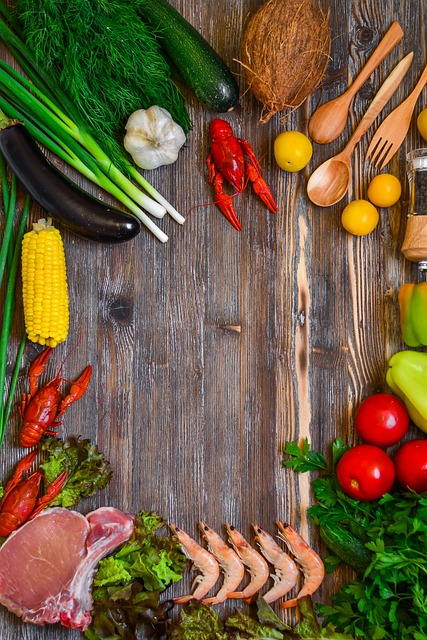
We’ve all heard the age-old adage “you are what you eat,” but who knew it could be so gosh-darn true? Turns out, that slice of pizza doesn’t just dissolve into a calorie count — it hustles its way into changing your entire mood. We’re peeling back the layers of this nutritional onion to show just how deeply your chow choosings can affect your mental marbles. Buckle up, as we’re exploring the tantalizing terrain of how nutrition isn’t just about your waistline, but your wellbeing as well.
Welcome to our health food revolution, where we delve into the impact of nutrition on mental health. Have you ever wondered about the influence that the eat affect your eating habits have on your mental health? Our approach focuses on the power of nutrition and mental health, guiding you away from processed foods which can exacerbate mental health conditions.
We put the spotlight on nutritional psychiatry, a field that champions the benefits of eating foods that support both physical health and psychological wellness. A healthy diet, such as the Mediterranean diet, can do wonders in managing mental health problems like major depressive disorder severe depression.
Nutrient-rich foods, like those filled with healthy fats and omega-3 fatty acids, have the potential to positively influence mental health and depressive symptoms.
We advocate for nutrient-dense whole grains and foods and fermented foods—historical staples in traditional diets that have numerous health benefits. Scientific evidence shows that these dietary patterns and eating patterns, filled with fresh fruits, whole grains, and olive oil, can stave off conditions like Alzheimer’s disease, cardiovascular disease, and even protect your nervous system. The focus is on ‘brain food’, which can lead to better emotional regulation and a healthy microbiome.
However, one must be mindful of the potential dark side of modern eating habits. Overindulging in highly processed foods and refined carbohydrates can lead to a spike in blood sugar, impact the health of your gut and immune system, and give rise to eating disorders.
The connection between what we eat and how we feel—our food mood connection—is undeniable. Nutritional interventions, including dietary interventions, offer a novel approach to mental health treatment and can even soothe symptoms of severe depression.
Nutritional psychiatry research continues to reveal clues to the correlation between diet and various mental health conditions, suggesting that eating foods rich in amino acids and avoiding sugars can lead to improved mental health symptoms.
A personalized diet can help mental health patients manage their mental illnesses, enhancing both their mind and physical activity levels.
The beck depression scale, a widely used method in clinical nutrition, can help determine the severity of depressive symptoms in mental health patients. The results can establish a firm foundation for formulating a diet that addresses individual mental health needs.
Utilizing the core principles of biological psychiatry, we aim to build a diet that not only nourishes your body but also assists in the management of psychotic disorders and psychiatric illness.
From our perspective, a healthier body leads to a healthier mind. Maintaining a diet filled with nutrient-dense, healthy foods like dark leafy greens and the fatty acids from fish both affects your physical health and your own mental health. It’s about building a balanced lifestyle that caters to both your mind and body.

1. Stress and Depression
Picture this: you’re feeling down in the dumps, and the world seems to be throwing lemons at you (sounds sour). But what if the solution lies in the fruit bowl? Stress and depression may not be a walk in the park, but utilizing food as medicine might just be the light at the end of your dark, snack aisle tunnel.
Now, I know what you’re thinking, “Are you seriously suggesting that broccoli is going to make me feel better?” Well, buckle up, buttercup, because we’re about to go on a wild ride into the land of serotonin-boosting foods that might just turn those frowns upside down. Imagine biting into a juicy strawberry or savoring a piece of dark chocolate, knowing that these aren’t just treats for your taste buds but also little cheerleaders for your brain.
Science says that foods rich in omega-3, antioxidants, and folate can kick those gloomy clouds away by boosting brain health. So, next time you’re feeling a bit moody, maybe reach for a handful of nuts or a vibrant fruit salad instead of wallowing with a bag of chips. Who knew that munching on some walnuts could be your ticket to a brighter mood?
2. The Psychobiology of Good Nutrition
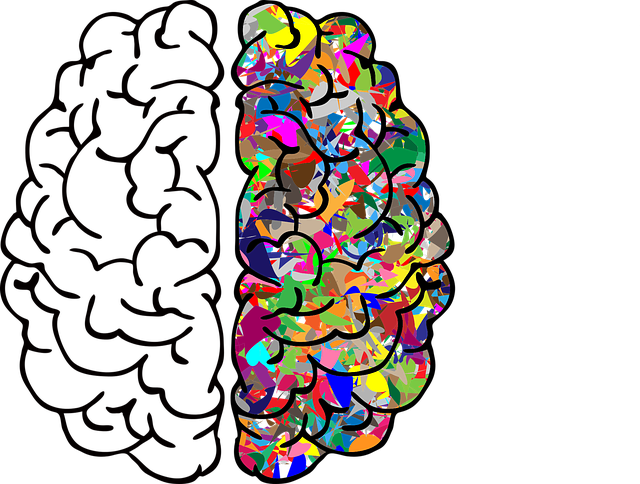
Good nutrition is like the unsung hero in the blockbuster of mental wellness. It doesn’t always get the screen time, but boy does it make the movie. The way your brain responds to nutrients can be the difference between a cliffhanger and a happy ending — spoiler alert, whole foods win.
It’s high time we gave props to the gut-brain axis — think of it as the ultimate bromance between your tummy and your noggin. When your gut is throwing a party with fiber-rich foods, probiotics, and all those leafy greens, your brain is on the guest list, vibing to the beats of happy hormones.
Keep the party classy with foods that love you back, and watch as your mental energy spikes. After all, a happy gut equals a happy mind, and who doesn’t want to be invited to that party?
3. Easing Stress Around Eating With Picky Kids

Navigating the food minefield with picky eaters is like playing a game of culinary chess. But don’t throw in the veggie-laden towel just yet. There’s chomping to be done, and these strategies might just steer your ‘lil mates to the land of not-so-green pastures.
Oh, happy day, when the spotlight falls on the rockstars of the nutrient world! First up, Omega-3s, strutting their stuff like the cool kids on the block. Fish like salmon and nuts like walnuts are their stage, and they’re here to play the long game for your mental health.
Then there are the B-vitamins – They’re like the unsung heroes tinkering with your energy levels. Find them hanging out in whole grains, leafy greens, and avocados, ready to pump up your feel-good vibes.
And we can’t forget about Vitamin D, the sunshine vitamin that doesn’t always get its moment in the sun. Whether it’s from a sunny day out or from fortified foods, Vitamin D is there to light up your world.
Together, these nutrients are the ultimate ensemble, playing the symphony that keeps your mind and body in harmony. Remember, every note counts, and with these guys in your band, you’re set for a chart-topping hit of health and happiness!
4. Diet, Depression, and ADHD
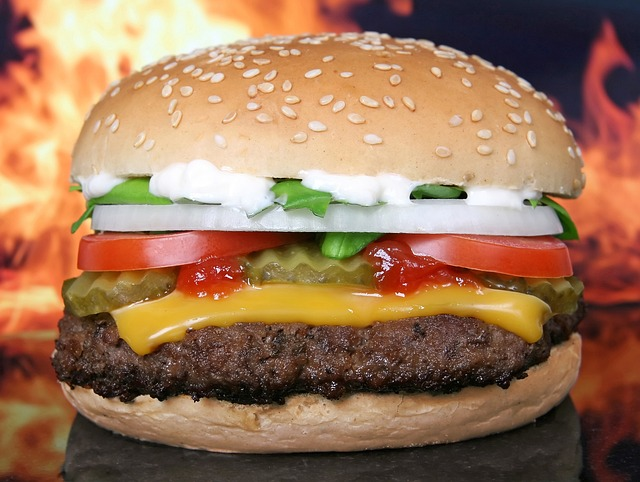
What’s the scoop with diets and disorders? A whole lot, turns out. We’re slicing through the complexity to serve up the nitty-gritty on how certain nutrition can be a superhero cape for those battling depression and ADHD.
Alright, gear up, kitchen warriors! It’s time to talk about the game-changing power of meal planning. Think of meal planning as your trusty sidekick in the epic battle for health and happiness. By planning your meals, you’re not just organizing your fridge; you’re crafting the ultimate playlist for your body and brain.
No more standing in front of the fridge, wondering what culinary tune to play next, only to default to microwave meals or, dare we say, the sad salad. With meal planning, you’ve got your setlist of nutrient-packed hits ready to go, making sure those rockstar nutrients hit the stage on the regular.
5. Brain Food
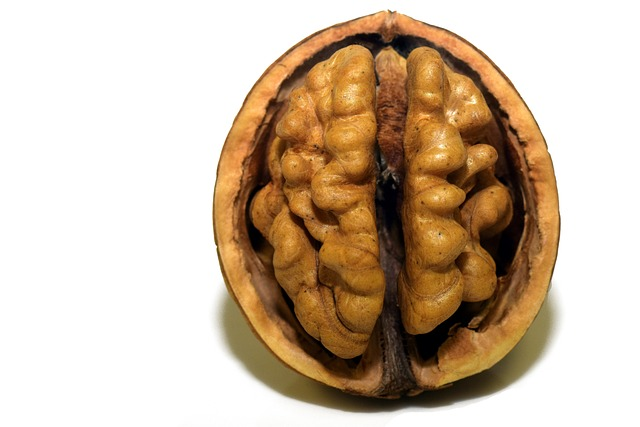
You know the hushed awe an art lover feels in the presence of a masterpiece? Well, that’s us when we think about the miraculous intricacies of the human brain. Snacking on the knowledge of the best brain foods is like visiting a gallery — except the art is edible and makes you smarter.
Feast your eyes (and brains!) on the VIP list of brain-boosting bounties – welcome to the smorgasbord of smart! First up, we have the omega-3 rich, sleek and shiny salmon, swimming its way to neuro-nourishment. Think of it as the brain’s elixir, lubricating those neurons for smooth, worry-free cognition.
Next, we’re lighting up the stage with blueberries, or as we like to call them, the brainberries. These little blue dynamos are packed with antioxidants that are like bouncers at a club.
Don’t forget the nuts and seeds – the crunchy crew that’s always got your back. With their stash of vitamin E, they’re the unsung heroes keeping your brain sharp and your memory on point.
And, for the grand finale, dark chocolate. Yes, you heard right. This isn’t just a treat for your taste buds but a boon for your brain. Rich in flavonoids, caffeine, and antioxidants, it’s the guilt-free indulgence that keeps you alert, happy, and ready to conquer the world.
Together, these foodie delights form the ultimate band, jamming their way through your digestive system and hitting those brainy high notes. Bon appétit to a smarter, happier you!
6. Microbiome Research
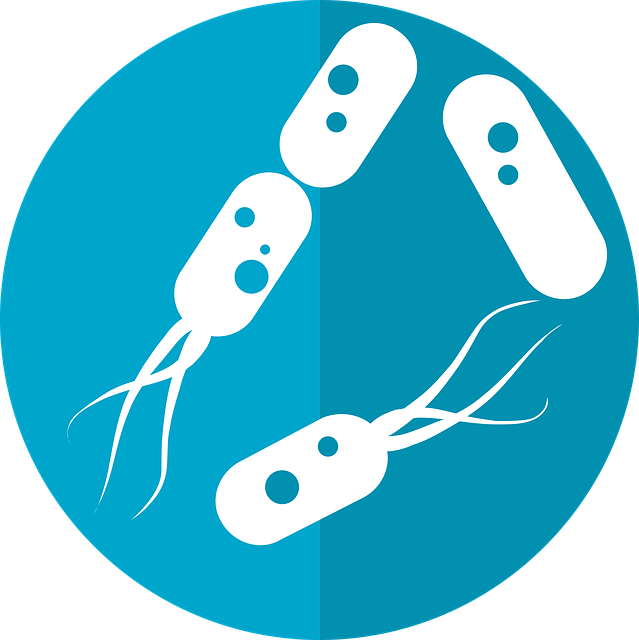
The little critters in our gut have been linked to more than just digesting – we’re talking about a microscopic workforce that may have the power to influence mental health. Grab a spoon, and we’ll stir up some probiotic knowledge to nurture your noggin.
Dive into the world of fermented wonders, where kefir, sauerkraut, and kombucha reign supreme. These aren’t just trendy foodie fads but your gut’s best friends, partying it up with your microbiome and laying down some serious health beats.
They’re not just good for the vibes; they’re like the life coaches for your gut, encouraging the growth of good bacteria, which in turn, might just be the secret DJs behind your brain’s best days. Who knew that a happier belly could lead to a happier brain? Cheers to that!
7. The Bidirectional Link Between Food and the Mind

It’s like a two-way street; just as your meals play a role in your mood, your mind can influence what — and how — you eat. This bidirectional path can be a circular recipe of health or a spiraled mess of nutrition-related stress and disordered, eating patterns.
Ever found yourself raiding the fridge after a marathon binge-watch or stress-eating during finals? That’s your brain sending out SOS signals to your belly, demanding immediate comfort via carbs. In the grand kitchen of life, emotions can hijack our cravings, turning us into culinary rebels without a cause. But here’s the kicker: mastering the art of mindful eating can turn the tables, transforming you from a snack-zombie into a savvy eater who listens to their body’s true needs.
8. Gut Microbiome
Take a microscopic journey into your lower intestine, and you’ll find a universe of bacterial buddies influencing your thoughts and feelings. A thriving gut microbiome is like a brain spa — but the treatments are all about that gut health.
Imagine your gut as the hottest club in town and fermented foods are the VIPs. Kombucha, kefir, sauerkraut – they’re like the DJs, dropping beats that keep your microbiome grooving to a positive vibe. And when your gut flora is jamming, your brain chemistry gets the invite to the party too. It’s all about that feel-good serotonin, baby, and a balanced gut is throwing the bash.
Maybe add a little kimchi into the mix and see how your mood swings. Your gut is basically the bouncer of your body’s health club, deciding what gets in and what doesn’t. Treat it right, and it’ll ensure the good vibes keep flowing, making sure you’re feeling top-notch from the inside out. Remember, a happy gut equals a happy you, and who doesn’t want an invite to that party?
9. Can a Mediterranean Diet Improve Physical Fitness?
You bet your olives it can. The Mediterranean diet isn’t just a chariot for brain health; it’s a golden chariot of veggies, lean proteins, and those oh-so-rich-in-omega-3 oils. If mental health is the destination, this wheel will take you there.
Now, before you roll your eyes and think the Mediterranean diet is about chowing down bowls of olives like they’re popcorn at a movie marathon, hear me out. This diet is the ultimate hack for boosting your fitness game. Picture this: mountains of colorful fruits and veggies, oceans of fish teeming with omega-3s, and enough nuts and seeds to make a squirrel’s stash look like child’s play. This isn’t just fuel; it’s premium, high-octane stuff that keeps your engine running smoother than a freshly waxed surfboard.
Think of your body as a high-performance vehicle. You wouldn’t fill a racecar with sludgy, discount fuel, right? The Mediterranean diet is like giving your body that top-tier, clean energy source. Plus, it’s sneaky good – packing in all the nutrients you need, but making it feel like you’re indulging in a feast fit for a Greek god every day. Say ‘adios’ to bland diets that make you dread mealtime. This is all about savoring flavors that’ll make your taste buds do the samba while your fitness levels soar.
10. Western Diet vs. Traditional Diets
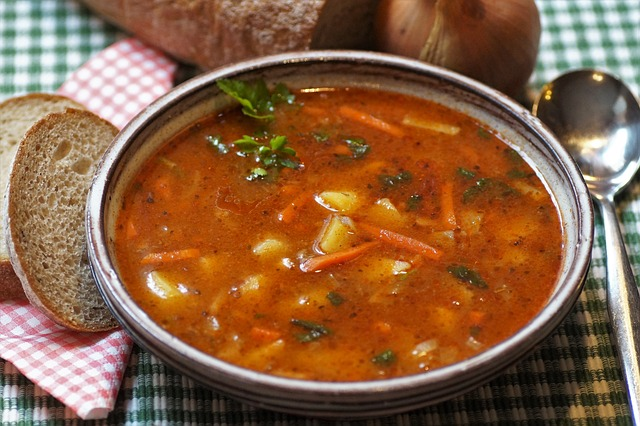
Ever felt like your body is craving tradition instead of those Westernized convenience goodies? There’s a reason for that. We explore the stark differences between diets designed for life versus those nuked for 3 minutes in a microwave.
Alright, strap in because we’re about to take a wild ride down the diet duel lane. On one side, we have the Western diet, often loaded with more sugar than a candy store and more processed foods than an assembly line. It’s like the fast-food superhero that never quite made it past sidekick status because, well, it’s not doing anyone any favors in the health department.
Flip the coin, and you’ve got traditional diets – think Mediterranean, Japanese, and others that have been around since your great-great-grandma was doing the Charleston. These diets are like the cool, worldly aunt who knows a thing or two because she’s seen a thing or two. They’re all about whole foods, rich in fruits, veggies, grains, and lean proteins. It’s like eating a rainbow, but without the leprechaun and the pot of gold. Traditional diets don’t just fill your belly; they nourish your soul and your cells.
11. Biology of Food-Mood Connection
Food feels like rocket fuel for our moods at times because, well, it kinda is. The connection between our menu and mood isn’t just wishful thinking; it’s a biological ballet. Good food, happy brain. It’s as simple and as complex as that.
Our brains are party animals that love serotonin, dopamine, and all those other feel-good chemicals that food can bring to the dance floor. Eating a balanced diet is like sending VIP invites to your brain’s happy chemicals, telling them it’s time to get down and boogie.
12. The Limits of the Western Diet
The term ‘limit’ is a bit of an understatement when it comes to what the Western diet could be doing to our collective mental health. This list could be thought of as a cautionary tale—proceed with processed foods at your mental peril.
While the Western diet whispers sweet nothings of convenience and mega-sized meals, traditional diets are the wise old sage, reminding us that slow and steady wins the race. One might get you through the day, but the other will get you through life, swinging on a vine of vitality, looking fab, and feeling like a million bucks.
13. How Unhealthy Eating Can Lead to Eating Disorders
The path from craving not-so-healthy things to a full-fledged eating disorder can be a slippery one. This slippery slope bends the double helix from nutrition to psychological health and wellbeing in a disconcerting dance.
14. The Naughty List: Unhealthy Nutrients and Their Impacts
Oh boy, where do we even start? Diving into the world of unhealthy nutrients is like opening Pandora’s box, but instead of ancient evils, it’s packed with trans fats, added sugars, and all those sneaky sodium levels that turn up where they’re least expected.
Trans fats are the party crashers of the nutrient world; they show up uninvited, overstaying their welcome and wreaking havoc on your cholesterol levels.
Added sugars are the sweet talkers, luring you in with promises of immediate energy and happiness. But the catch? They plunge you into a sugary pit of despair, mood swings, and a craving cycle that’s harder to escape than a conversation with your chatty neighbor.
And sodium, oh sodium, too much of it is like throwing a pool party in your body, but without the fun. It invites water retention and high blood pressure.
Each of these nutrients, in excess, does a number on our bodies and brains, turning our internal bliss into a bit of a mess.
15. ASN Journals Explore Nutrition and Mental Health
The experts are buzzing about it, and so should you. Science is shedding light on the impact of molecular morsels on our minds. The journals are the treasure maps and the starting points for nutritional serenity.
Check out this article for some fascinating insights into nutrition and diet. You’ll discover valuable information that could truly impact your overall well-being.
16. The Rise of Nutritional Psychiatry
It’s the movement with a medley of mood-boosting menus — nutritional psychiatry isn’t exactly new, but it’s finally getting its seat at the top mental illness health table. This rising star in the mental health universe is showing us that food could be the best therapist we never knew we had.
17. Diet vs. Dieting

The wordplay isn’t just semantics; it’s a psychological semantics about your relationship with food. Dieting is a fickle friend, but diet is a lifelong ally. It’s time to redefine your conversation with the healthy eating habits that could well define your mental harmony.
18. Make Foods With Healthy Fats Your Go-To
We need to get over our fat phobia, folks. Those Omega-3s and -6s are more than just the building blocks of health; they could be the tenants of mental calm. It’s time to invite the good fats back into our lives and onto our plates like long-lost friends.
19. Reach Out for Help

If mental health and nutrition feel like a confusing dish, you’ve got options. Asking for help isn’t a sign of weakness; it’s an affirmation of wanting to be the healthiest version of yourself. Your brain deserves a personal chef — and those chefs come in the form of nutritionists, counselors, and supportive communities.
20. Take a Break From Fast Food and Ultra-Processed Food
The drive-through might seem like a quick fix, but it’s a long road down the digestion detour. Taking a hiatus from the fast food frenzy and the ultra-processed parade might just give your mental faculties a fighting chance.
21. Is Your Diet Affecting Your Mental Health?
Your diet is like a tailor-made suit for your body, affecting every fiber of your being. If the fabric of your diet and mental health together is wrinkling, perhaps it’s time to reconsider the materials you’re using. An alteration in diet might be the bespoke solution your mind needs.
22. Don’t Shop While Hungry
The grocery store battlefield is no place for a rumbling tummy. Not only will those snack aisles look like a rainbow road to happiness, but your cart might just be a regatta of regret once the hunger pangs subside. Eat before you shop, and save some greenbacks and your sanity.
Brace yourself, these aren’t just your average grocery list items. They’re the essential ingredients to stirring up a mental health masterpiece. It’s not just about eating right; it’s about eating for mental might. Grab your spatulas, we’re about to whip up a feast for thought.


